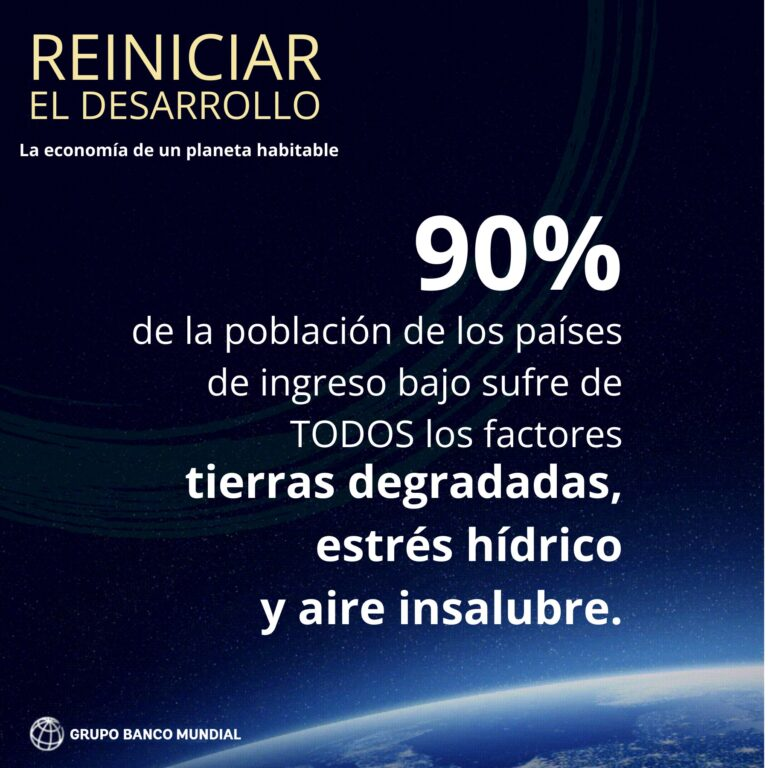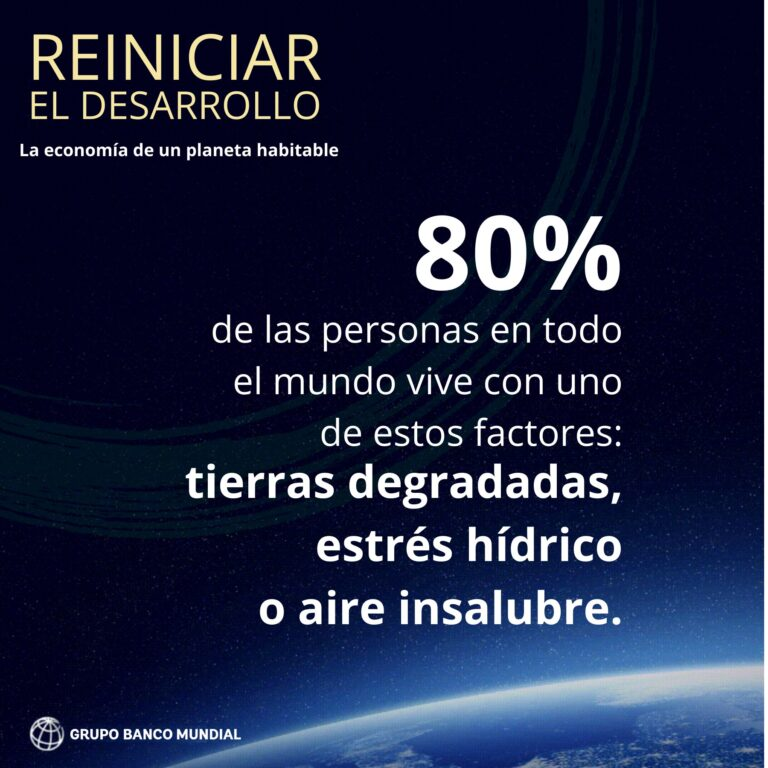
A new World Bank report reveals that restoring natural systems is not only vital for the planet, but also represents a significant economic opportunity. The study, titled Reboot Development: The Economics of a Livable Planet, highlights that investing in safeguarding natural resources could generate substantial returns in terms of growth and employment.

Ninety percent of the world’s population lives in areas with environmental challenges such as degraded land, unhealthy air, and water stress. This situation, especially in low-income countries, restricts economic growth and opportunities. For example, forest loss and the overuse of nitrogen fertilizers carry multi-billion-dollar costs, while air and water pollution reduce productivity and human potential.
However, the report proposes that proper management of nature can be a powerful lever for economic development. It is estimated that more efficient use of natural resources could reduce pollution by up to 50%. Furthermore, improved agricultural practices could generate benefits 25 times greater than their cost.

Investment and policy opportunities
The World Bank study identifies key areas where investing in nature can generate high economic returns:
• Pollution Markets: Emissions markets not only reduce air pollution, but are also extremely profitable. Every dollar invested in these types of initiatives can generate returns of between $26 and $215.
• Technology and Data: The use of real-time data, from pollution monitoring to satellite imagery, can help governments make informed decisions, empower citizens, and drive accountability, resulting in more effective policies.
• Coordination and Evaluation: The report underscores the need for a systemic approach where environmental, economic, and social policies are coordinated to avoid unintended consequences. Furthermore, periodic evaluations are crucial to adapt reforms to changing realities and maximize their impact.
Axel van Trotsenburg, Senior Managing Director of the World Bank, noted that “this report offers a new perspective for analyzing environmental challenges: not as constraints, but as opportunities for smarter development”. With smart investments, countries can restore natural systems while driving sustainable and resilient economic growth.







